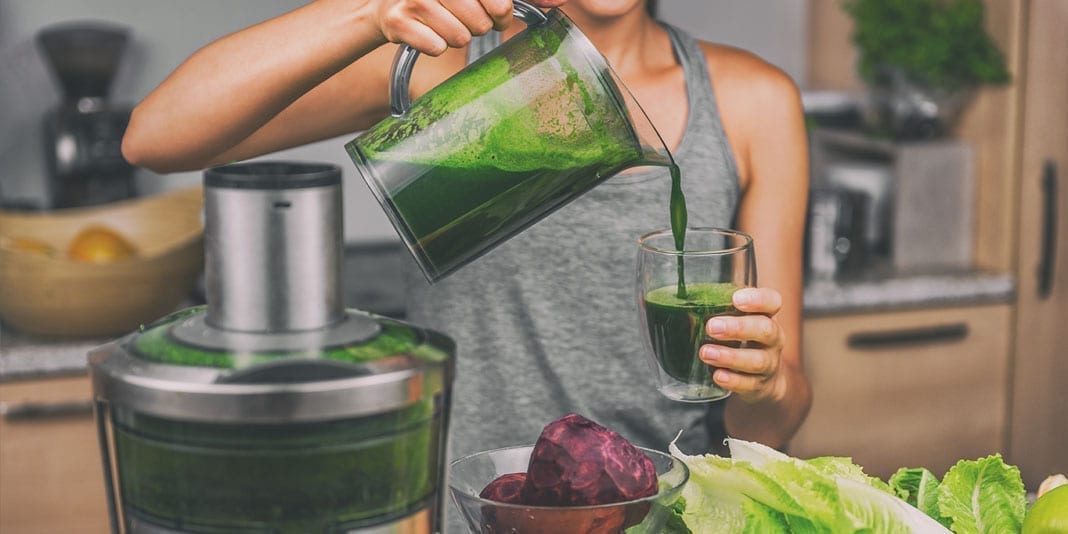Blend, blend, blend
Most juicers remove the pulp completely, but that’s where the fiber lives, which can help you feel fuller longer. So if you have the option, opt for making juice in a machine like the Vitamix, which pulverizes whole foods but still keeps the good stuff intact (instead of completely extracting the juice). The experts we spoke with—Susan Blum, M.D., M.P.H., Samantha Heller, R.D. and Lisa Drayer, R.D.—all recommend getting your “juice” in this liquefied form since it’s closer to eating the whole food.
MORE: Is a Juice Detox Right For You?
Slash sugar
Many store-bought fruit juices are loaded with sugar (and very little actual fruit), so drinking a juice blend made from whole fruits is a healthier option than glugging a tall glass of liquid sugar. However, whether you’re buying a pressed juice or making your own at home, steer clear from mixtures that contain all fruit or starchy items, cautions Blum. For instance: an apple, carrot and beet juice is very high in sugar and carbohydrates. But a ginger, kale and apple juice is a better mix for your waistline and blood sugar levels because it contains greens and just one fruit item. Sugar overload (yes, even from fruit juice!) is murder on skin—it damages collagen and elastin, the building blocks of firm, youthful skin.
Learn the truth about absorption
Although juicing does concentrate the nutrients, the notion that your body will better absorb vitamins, minerals and phytochemicals in juice (which many juicing advocates believe) may not be accurate because there are many compounds such as vitamin D or lycopene that need fat to be absorbed, explains Heller. In other words, simply drinking the juice may not cut it in terms of giving your body all of the nutrients required. You need other foods—like protein and healthy fats—to fully soak up the healthy antioxidants.
MORE: 10 Ways to Make Your Meal Healthier
Pump up the protein
Most juices are low or completely lacking in protein, which is key for the healthy growth of your hair, skin and nails, says Drayer. And besides your looks, going without protein for an extended period of time can be detrimental for your whole body: “When you limit the body’s intake of protein, you’re limiting the body’s ability to function optimally,” says Heller. Hello, mid-afternoon brain fog!To combat this, throw in a scoop of protein powder before you blend your juice (Blum suggests rice protein powder), or ask the folks at the juice bar to add a tablespoon of peanut butter to your mixture.




































